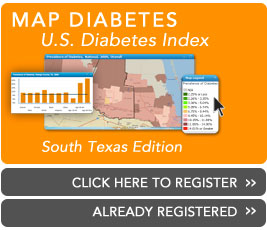Posted by Staff
News
Wednesday, February 19th, 2014
Diabetes Care: February 2014
OBJECTIVE Previous meta-analyses identified an inverse association of coffee consumption with the risk of type 2 diabetes. However, an updated meta-analysis is needed because new studies comparing the trends of association for caffeinated and decaffeinated coffee have since been published.
RESEARCH DESIGN AND METHODS PubMed and Embase were searched for cohort or nested case-control studies that assessed the relationship of coffee consumption and risk of type 2 diabetes from 1966 to February 2013. A restricted cubic spline random-effects model was used. Read More
Posted by Staff
News
Wednesday, February 19th, 2014
PLOSONE: 1/29/14
Possible association between diabetes mellitus (DM) and Alzheimer’s disease (AD) has been controversial. This study used a nationwide population-based dataset to investigate the relationship between DM and subsequent AD incidence.
Methods
Data were collected from Taiwan’s National Health Insurance Research Database, which released a cohort dataset of 1,000,000 randomly sampled people and confirmed it to be representative of the Taiwanese population. We identified 71,433 patients newly diagnosed with diabetes (age 58.74±14.02 years) since January 1997. Using propensity score, we matched them with 71,311 non-diabetic subjects by time of enrollment, age, gender, hypertension, hyperlipidemia, and previous stroke history. All the patients were followed up to December 31, 2007. The endpoint of the study was occurrence of AD. Read more
Posted by Staff
News
Wednesday, February 19th, 2014
BMC Medicine: 1/24/14
Diabetes history in biologically-related individuals increases diabetes risk. We assessed diabetes concordance in spouses (that is, biologically unrelated family members) to gauge the importance of socioenvironmental factors.
Methods
We selected cross-sectional, case–control and cohort studies examining spousal association for diabetes and/or prediabetes (impaired fasting glucose or impaired glucose tolerance), indexed in Medline, Embase or Scopus (1 January 1997 to 28 February 2013). Effect estimates (that is, odds ratios, incidence rate ratios, and so on) with body mass index (BMI) adjustment were pooled separately from those without BMI adjustment (random effects models) to distinguish BMI-dependent and independent concordance. Read More
Posted by Staff
News
Wednesday, February 19th, 2014
PLOS: January 14, 2014
It is well established that aerobic physical activity can lower the risk of type 2 diabetes (T2D), but whether muscle-strengthening activities are beneficial for the prevention of T2D is unclear. This study examined the association of muscle-strengthening activities with the risk of T2D in women.
Methods and Findings
We prospectively followed up 99,316 middle-aged and older women for 8 years from the Nurses’ Health Study ([NHS] aged 53–81 years, 2000–2008) and Nurses’ Health Study II ([NHSII] aged 36–55 years, 2001–2009), who were free of diabetes, cancer, and cardiovascular diseases at baseline. Participants reported weekly time spent on resistance exercise, lower intensity muscular conditioning exercises (yoga, stretching, toning), and aerobic moderate and vigorous physical activity (MVPA) at baseline and in 2004/2005. Read More
Posted by Staff
News
Wednesday, February 19th, 2014
JAMA: February 2014
Importance Thickening of the center of the retina, diabetic macular edema (DME), is the most common cause of visual loss due to diabetes mellitus. Treatment of DME has improved dramatically, and the prompt diagnosis of DME and referral of these patients have become more critical. Nonetheless, awareness of and care for DME in the US population is uncharacterized.
Objective To characterize eye care and awareness of eye disease among persons with DME in the general US population.
Design, Setting, and Participants Cross-sectional analysis of data from participants in the 2005 to 2008 National Health and Nutrition Examination Survey 40 years or older with diabetes mellitus and fundus photographs.
Main Outcomes and Measures Among persons with DME, (1) awareness that diabetes has affected their eyes; (2) report on the last time they visited a diabetes specialist; (3) report on their last eye examination with pupil dilation; and (4) prevalence of visual impairment. Read more
Posted by Staff
Minority Diabetes Reports
Wednesday, February 19th, 2014
Diabetes Care: February 4, 2014
OBJECTIVE The Northern Manhattan Diabetes Community Outreach Project evaluated whether a community health worker (CHW) intervention improved clinically relevant markers of diabetes care in adult Hispanics.
RESEARCH DESIGN AND METHODS Participants were adult Hispanics, ages 35–70 years, with recent hemoglobin A1c (A1C) ≥8% (≥64 mmol/mol), from a university-affiliated network of primary care practices in northern Manhattan (New York City, NY). They were randomized to a 12-month CHW intervention (n = 181), or Enhanced Usual Care (educational materials mailed at 4-month intervals, preceded by phone calls, n = 179). The primary outcome was A1C at 12 months; the secondary outcomes were systolic blood pressure (SBP), diastolic blood pressure, and LDL-cholesterol levels.Read more
Posted by Staff
Minority Diabetes Reports
Wednesday, February 19th, 2014
Insulin Nation: January 28th, 2014
Hispanics and Latinos make up the fastest-growing demographic of the U.S. population. They also are experiencing the fastest increase in the rates of both Type 1 and Type 2 diabetes, and that alarms many public health officials.
According to a recent American Diabetes Association analysis of diabetes health data, 52.5% of Hispanic women and 45.4% of Hispanic men will have Type 1 or Type 2 diabetes in their lifetimes. In contrast, only 31.2% of non-Hispanic women and 26.7% of non-Hispanic men will experience diabetes, according to a WebMD report. In a recent survey conducted by the Robert Wood Johnson Foundation and the Harvard School of Public Health, health care costs and diabetes rank as the top health concerns among Latino and Hispanic Americans, according to an article in Kaiser Health News. Read More



























